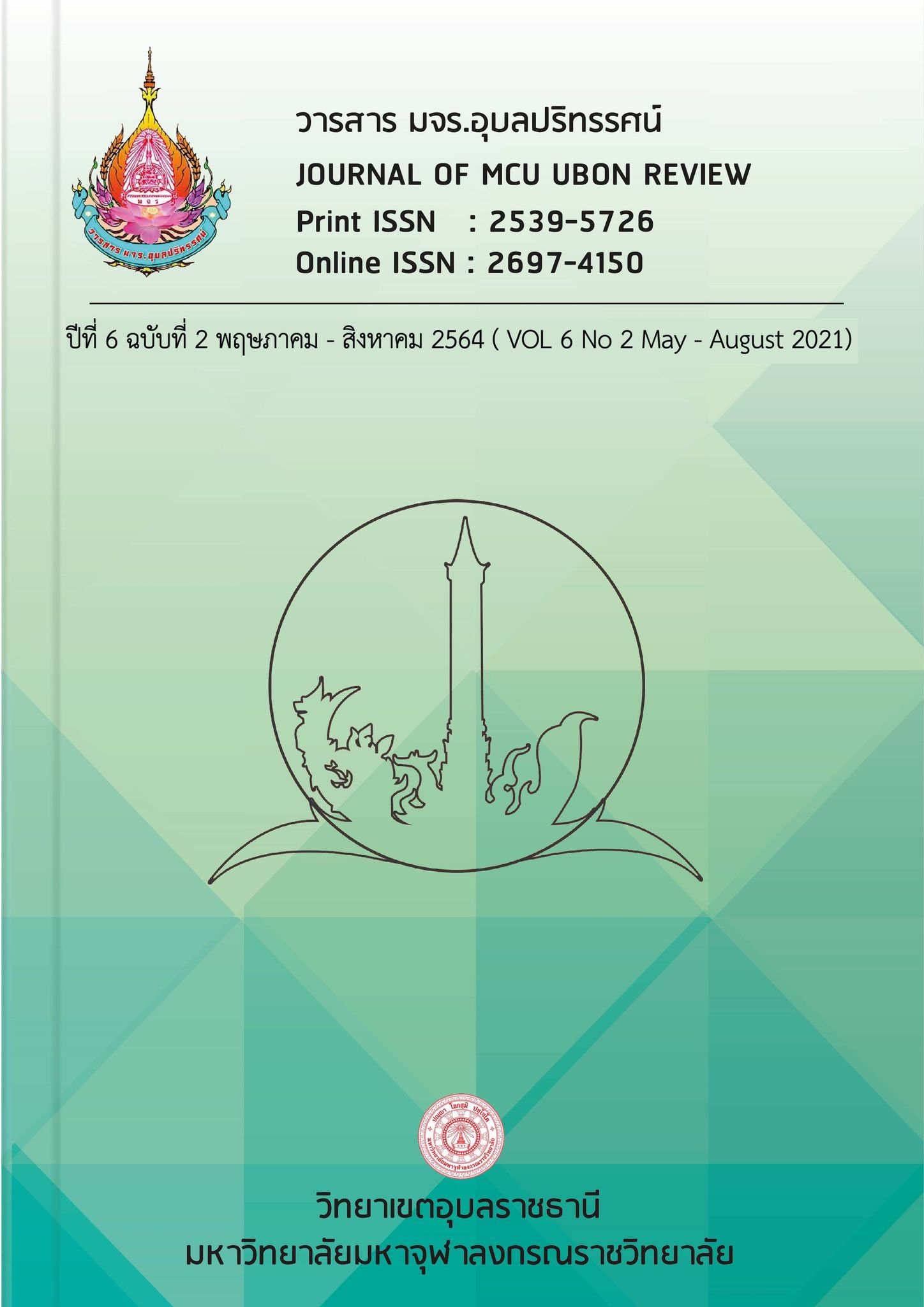Toleration: Peace building process of community leaders along the Thai-Cambodian border
Main Article Content
Abstract
Research: Toleration: Peace building process of leaders along the Thai-Cambodian border. is Qualitative Research an in-depth interview with objectives which are 1) to study Toleration with the operations of community leaders along the Thai -Cambodian border. 2) to study the Process of Creating Peace of community leaders along the Thai-Cambodian border, and 3) to Analyze the peace-building process of community leaders along the Thai-Cambodian border. The researcher chose to use the qualitative method. Is focusing on documentary research and field research which Summarize the Research results according to the following findings
The research found that:
Toleration and the actions of community leaders along the Thai-Cambodian border found that leaders have social political economic and educational activities based on four principles: 1) to lerance 2) endure the suffering that arises physically 3) tolerate the abusive words, sarcasm, and 4) the suppressing power of desire.
The peace-building process of community leaders along the Thai-Cambodian border four aspects: 1) social, consisting of (1) legal process (2) ethical process (3) cultural process and (4) traditional process 2) Politics 3) economic and 4) education
Analyzing the peace building process of community leaders along the Thai-Cambodian border, found that the leaders 4 aspects of the peace-building process: 1) the social aspects which were (1) the use of administrative law to achieve peace (2) the use of principles such as principles Substance And tolerance principles To achieve love, unity and strength. 3) Culture promotes the dress Respect for the elderly To achieve beauty And love and mercy; and 4) traditions such as the heat of the twelfth To create ties and peace. 2) Politics to promote democracy. Electoral rights were used. 3) Economic aspects to promote trade And 4) education. Leaders have knowledge and understanding and can provide useful advice in the community. And keep developing the community regularly
Article Details
References
พุทธทาสภิกขุ, (2537). ทศพิราชธรรม, กรุงเทพมหานคร: ธรรมสภา,
พระราชนันทมุนี (ภิกขุ ปัญญานันทะ), (2525).คำสอนผู้บวชใหม่ อบรมพระนวกะ, พิมพ์ครั้งที่ 4, กรุงเทพมหานคร: หจก. การพิมพ์พระนคร.
พระมหาสุทิตย์ อาภากโร, (2555),“แนวคิด ทฤษฏีเกี่ยวกับชุมชนและเครือข่ายทางสังคม”,เอกสารประกอบการเรียนการสอนวิชาพระพุทธศาสนากับการพัฒนาสังคม คณะสังคมศาสตร์ มหาวิทยาลัยมหาจุฬาลงกรณราชวิทยาลัย.
พระพรหมคุณาภรณ์ (ป. อ. ปยุต.โต), (2555). ความสำคัญของพระพุทธศาสนาในฐานะศาสนาประจำชาติ, กรุงเทพมหานคร : โรงพิมพ์สหธรรมิก.
มารค ตามไท, (2543). การจัดการความขัดแย้งด้วยสันติวิธีในสันติวิธี: ยุทธศาสตร์ชาติเพื่อความมั่นคง, กรุงเทพมหานคร: สถาบันยุทธศาสตร์ สำนักงานสภาความมั่นคงแห่งชาติ.


